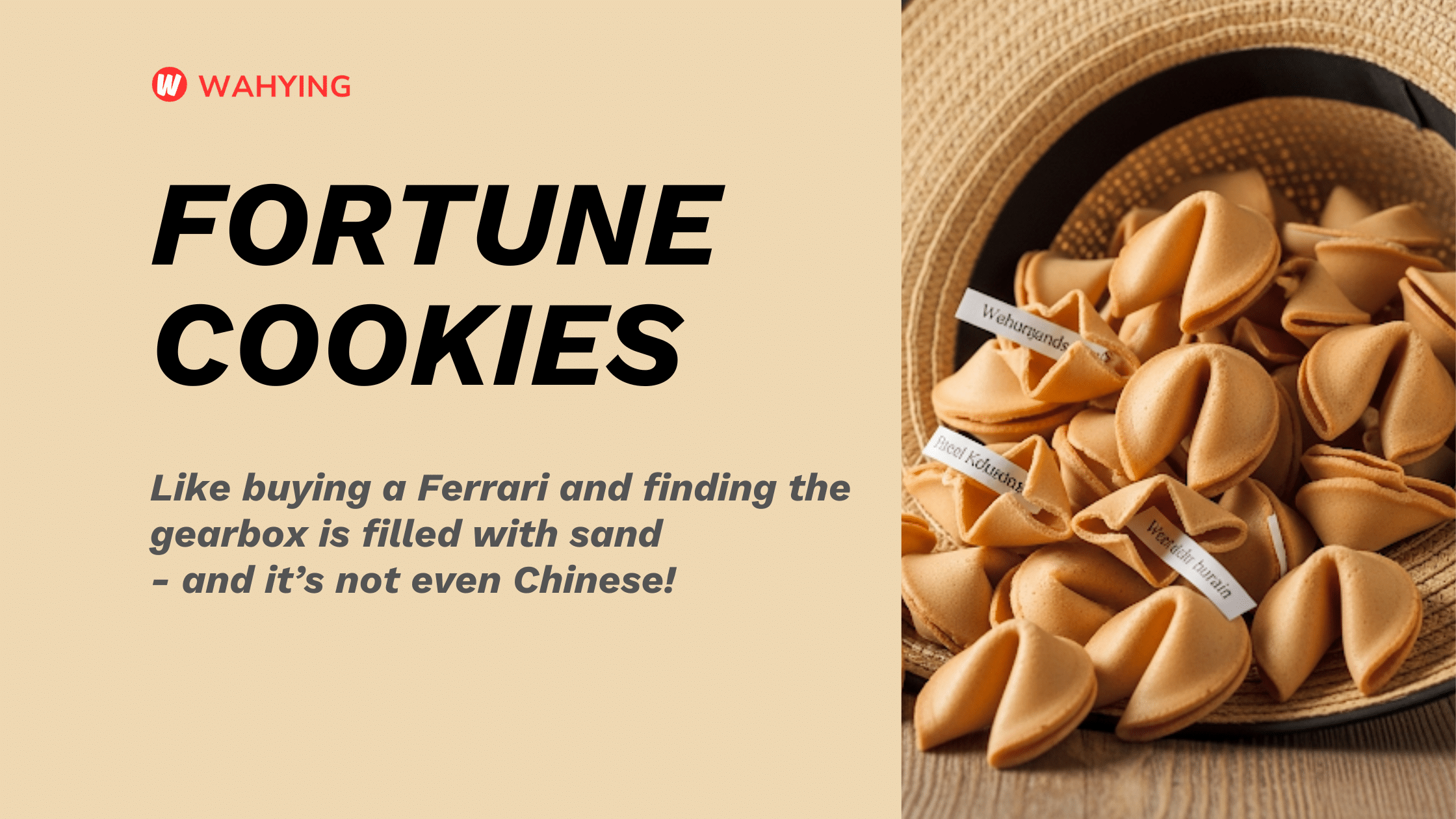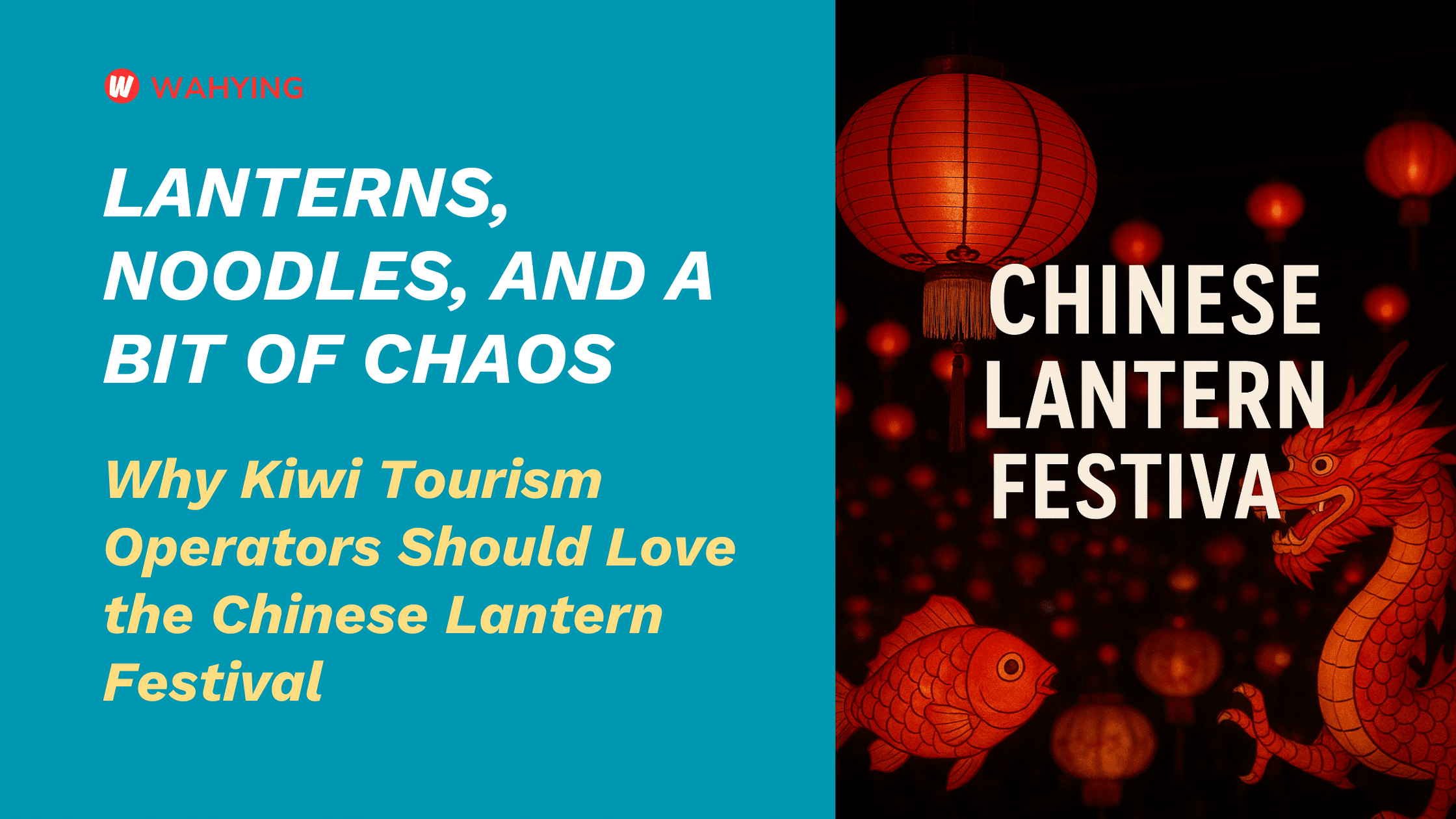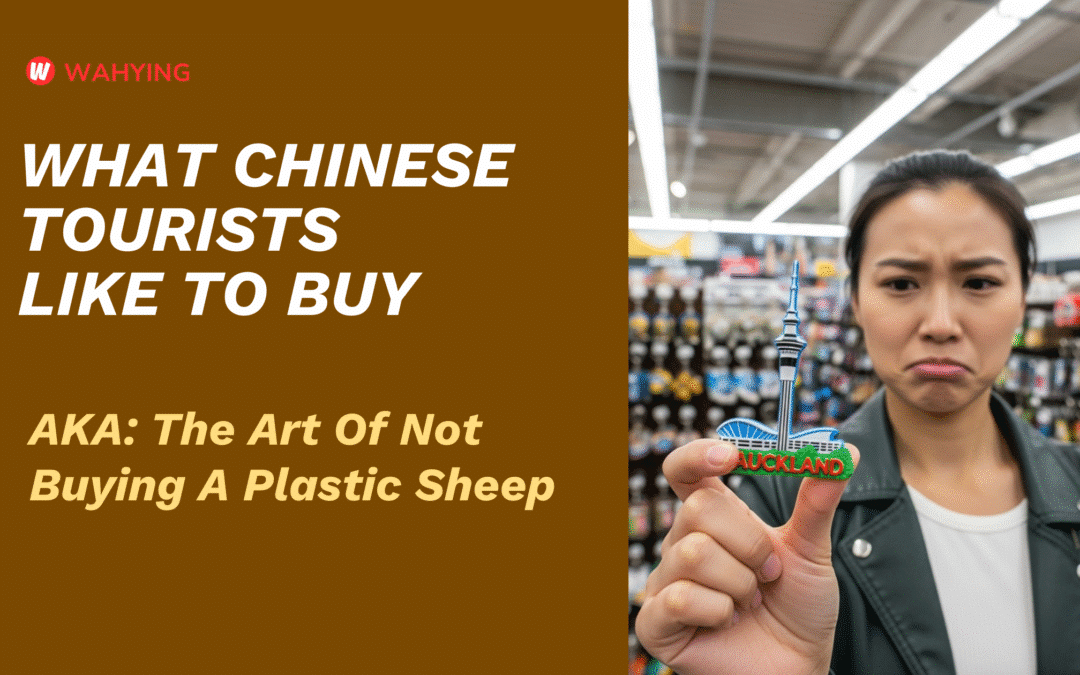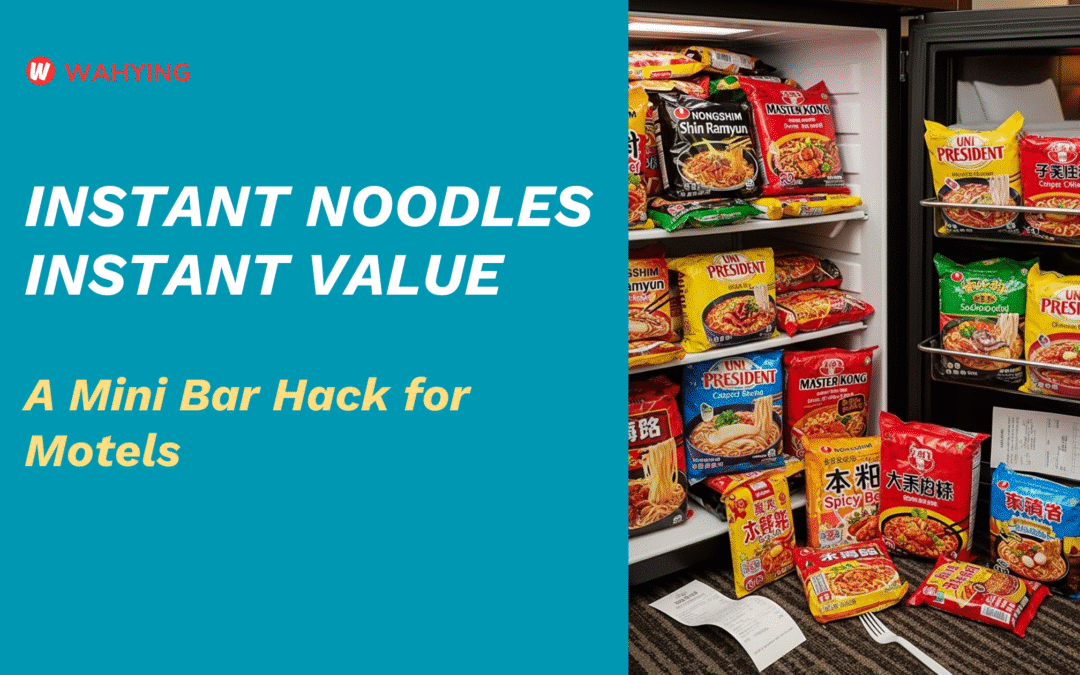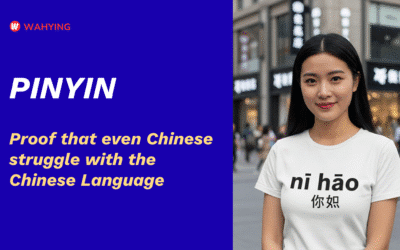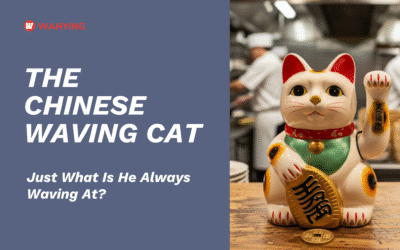The Surprising Truth About Fortune Cookies – by Someone Who’s Had Too Many of Them
Thinking of handing out a few complimentary Fortune Cookies for your Chinese guests during New Year 2026? Don’t!
Let’s get one thing straight. Fortune cookies are not Chinese. Not even remotely. They’re about as Chinese as a cheeseburger dipped in Marmite and driven to work in a Ford Focus. And yet, for reasons I can only chalk up to mass confusion and the occasional dim view of geography, we all merrily crunch into these brittle little sugar envelopes at the end of every Chinese meal, expecting them to deliver some profound truth about our future.
You finish your sweet and sour pork; someone brings you the bill and a small beige half-moon that looks like it was made by IKEA with a hangover. You crack it open and out pops a slip of paper that says something like, ‘You will find happiness in unexpected places.’ Which is probably true if you accidentally sit on a jelly doughnut. But here’s the kicker: these ‘Chinese’ fortune cookies? They’re from… California. Yes. Land of avocado toast and spiritual yoga dogs.
And if you really want your head spun around like a dodgy corner in a maze, their true origin is Japanese. Yes, Japanese. Those inhabitants of nearby island that modern Chinese understandably despise as though it were still 1935.
Apparently, in some corner of Japan – long before anyone had heard of MSG or sushi burritos – people were eating larger, darker, sesame-laden crackers called tsujiura senbei, which already had little fortunes tucked inside. Some clever sod, likely a baker with too much time on his hands, brought the idea over to America and thought, ‘Let’s sweeten it up, shrink it down, and confuse millions of people for the next hundred years.’
Now, credit where credit’s due: one bloke called Makoto Hagiwara – a Japanese immigrant – supposedly served these things in San Francisco’s Japanese Tea Garden in the early 1900s. Nice chap. Then some other bloke, David Jung, claimed he invented them in Los Angeles in 1918, because of course he did – nothing says ‘I care about the unemployed’ like handing out philosophical biscuits.
But the real twist? During World War II, when Japanese Americans were unceremoniously herded into internment camps – a shameful chapter, by the way – Chinese American restaurant owners saw a gap in the market. They nicked the idea, mass-produced it, made the cookie lighter, sweeter, and shoved them into the end of every meal like a contractual obligation.
And so, the fortune cookie was reborn, not as a Japanese cracker, but as an ‘authentic’ Chinese restaurant tradition. Which, again, it absolutely isn’t.
Fast forward to today and we’re churning out billions of these things. BILLIONS. They’re practically their own food group in America. Meanwhile, in China? Good luck finding one. Unless you’re in a tourist trap next to a Starbucks.
So, the next time someone hands you a fortune cookie, don’t pretend it’s some ancient Eastern wisdom passed down by Confucius himself. It’s a Californian-Japanese-Chinese-American hybrid of confusion and sugar. A culinary mutt. But oddly enough, one that we all kind of love.
Just don’t expect it to predict your lottery numbers. Or your future. It barely knows its own past.
And don’t hand one to a Chinese visitor. In the unlikely event they even know what it is, they will mutter under their breath about ‘Remember Nanjing!’, before stomping off in search of some poor unfortunate Japanese to unceremoniously insert said Fortune Cookie into a very painful place.

